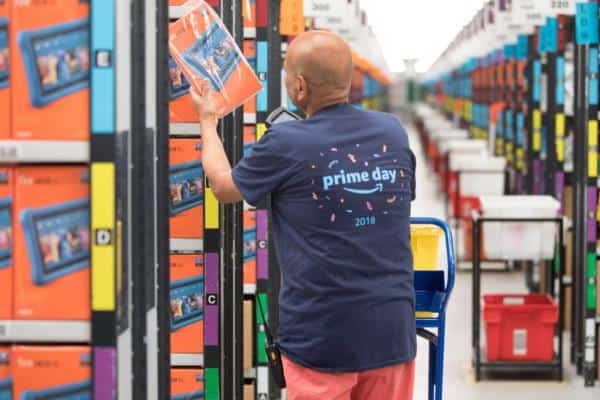Brendan Pittaway investigates the British retail industry’s response to European efforts at growing cross-border sales online.
As a General Election draws ever closer, it is a fairly safe bet that one of the issues likely to generate most attention from Britain’s politicians, pollsters and population is the lingering idea of the country resigning its membership of the European Union. It is perhaps ironic, therefore, that just as Westminster deliberates over whether to bid Brussels au revoir, the UK’s retailers are eager to support attempts by eurocrats to foster more – and more efficient – cross-border ecommerce between the EU’s member states.
Furthermore, almost as soon as the ballot boxes have been put into storage once more, the European Commission (EC) is likely to make a decision which could have long-lasting repercussions for retailers trying to grow the amount of goods that they sell to consumers in different countries.
June marks the end of a period in which the EC has been monitoring the response of both to a ‘roadmap’ published in December 2013 in an attempt to overcome obstacles to ecommerce, problems characterised at the time as “market failures” by Commission Vice-President Michel Barnier.
A note of compulsion was struck too, as the Commissioner warned that “additional measures” might be required if sufficient progress was not made by retailers and their delivery partners in the 18 months allowed.
His comments have been interpreted by some as a threat of regulation, an action which has prompted fears that sales to foreign consumers might be choked. Ray Symons, Head of EU and International Affairs at the British Retail Consortium (BRC), is rather more relaxed. “I don’t think that anyone can dispute that there are issues which need to be addressed. However, look at how cross-border ecommerce has evolved and been embraced enthusiastically – especially by British retailers – even with those barriers in place,” he says.
“I’m not in a position to speculate as to precisely what kind of proposals the EC will make once this period of deliberation is up but I am optimistic that it will take those decisions which help and not hinder retailers looking to grow business beyond their own borders.”
POTENTIAL
Werner Stengg is also keen to point out the positives of the project that the EC is engaged in. As Head of its Online and Postal Services unit, he has been at the heart of the Commission’s efforts to establish the best way forward for the last few years.
The ‘roadmap’, he explains, was not just intended for the eyes of retailers but their delivery partners as well. Whilst some post and parcel firms were resistant to the prospect of intervention by Brussels, Stengg says retailers have been quick to see the potential.
“They have embraced what we are trying to do. I think that we share the same objectives, in particular creating a better regulatory and market environment which is more conducive to growing cross-border trade.
“I understand, of course, that getting involved in the small details is not necessarily their natural reflex. They’re not specialists in policy, so leave that to others. They really just want to get on with business and sell their products.”
It’s worth pointing out that, so far, retailers across the continent – and Britain especially – have proved mightily effective at doing just that as a wealth of recent studies have pointed out.
E-Commerce Europe, the association which represents more than 25,000 retailers, has reported that combined online sales for the EU’s 28 member states amounted to nearly €318bn in 2013, up more than 14% on the year before.
The UK was by far the biggest single market not just in terms of purchases (€107.1bn) but for sales made online to customers in other countries. Those purchases aren’t only made by fellow Europeans. Figures from eBay reveal that UK vendors received orders from more than 200 different countries during 2013, a development which its Director of Cross Border Trade, Murray Lambell, heralded as “further evidence that we’re seeing the death of distance”.
Major UK retail operations, such as Next, predict that the momentum will not slow soon. It has projected a surge in international sales to more than £150m in the current financial year from £101m in 2013-14.
CHALLENGES
Even so, there are still enough “challenges”, as Werner Stengg describes them, to warrant investing time and effort trying to make improvements. In his opinion, better delivery is a critical part of any solution. “There is tremendous diversity in consumer delivery preferences across Europe, in how people in different states receive items that they buy online.
“Trying to come up with a solution that is good for everybody impacts on thinking about whether a Europe-wide approach or more regional freedoms are required.”
Whilst the BRC doesn’t exactly disagree, there is certainly divergence, according to Ray Symons. “Delivery is only one of a number of issues. Returns are considerably more problematic for retailers because consumers – wherever they are – will be reluctant to buy goods that they can’t return easily if they don’t like them. It is a real headache because there is an expectation that retailers will absorb the cost of returns.
“The thing which would make the most difference and persuade more retailers to enter the cross-border market is a change in EU consumer law. There has already been an idea floated by the EC which would allow UK retailers to be bound by UK consumer law rather than the law in any country that they’re selling to.
“At a stroke, that would make smaller operators without the capability to understand 28 different sets of consumer regulations more willing to dip their toes in the water.”
Werner Stengg appreciates the reference. “SMEs”, he says, “are probably the critical part of our project. What they want is a single contact point – an intermediary – which takes care of all their logistics problems. That is probably the only way for smaller companies to deal with that complexity.”
Reconciling the needs of consumers and retailers is something for which parcel and carrier manager Global Freight Solutions (GFS) has become renowned over more than a decade.
As well as working with a number of major retail brands, Neil Cotty, the firm’s Managing Director, reckons that roughly three-quarters of his retail clients are the kind of SMEs whose case is now being argued both by the BRC and by Brussels.
This autumn, the company unveiled GFS Checkout, software aimed at “democratising” the shipping process. Suitable for ecommerce operators of all sizes, it enables smaller retailers to access for free the breadth of delivery options – including international shipments – which only a handful of much larger competitors offer today.
Cotty describes it as being “a mini-revolution” in how vendors, their customers and carrier partners interact. “We set out to develop something which would allow e-tailers to present – simply – a broad range of even premium delivery options that they might not otherwise be able to do.
“It’s more than just about giving consumers a bigger menu of services from which to pick. Shoppers often have the kind of negative experiences that both the EC and Westminster have become aware of either because they can’t choose a method or speed of delivery that they want or they’re not sure about how much it will cost.”
It is the sort of support which Ray Symons believes British retailers trying to grow their cross-border sales will acknowledge. As the EC prepares to reflect on the response to its roadmap, Symons feels confident about the outcome.
“I think that the EC has already recognised the need to deal with some of the problems that we’ve mentioned. If you look at the Commission’s work programme for 2015, enabling the success of the digital single market – of which ecommerce is a key part – is one of its priorities.
“The Commission knows that Britain is not just the biggest market but also sells more goods cross-border than any other EU state. I wonder whether that’s down to British retailers having more entrepreneurial spirit and more of an appetite for risk than their competitors.”
However, that “spirit” in itself, suggests Werner Stengg, is not all that is required. Closer partnerships to benefit the continent’s consumers might well still need to be allied to further initiatives out of Brussels to effect a lasting, positive result.
“I agree that you should generally be cautious about public intervention in areas already showing innovation and success. On the other hand, we’re looking at cross-border trade which is not as long-established as the various domestic markets. In fact, it’s something of a black box, full of unknowns.
“I think that retailers need to send very strong signals to the delivery industry about what they need and expect in terms of services. If those things could be communicated more clearly, that would help in creating the kind of solution that we want to see.”




